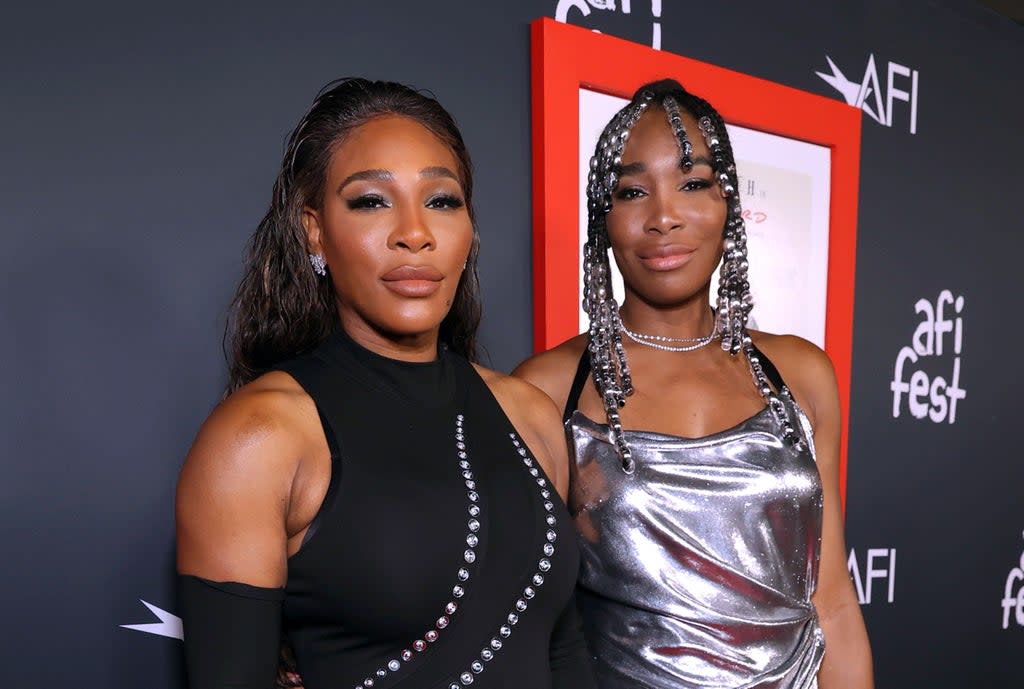Voices: ‘King Richard’ focuses on Venus and Serena Williams’s father – and rightfully so

There’s a clip of a young Venus Williams at 14 years old that goes viral every now and again on social media. It’s 1995 and she’s being interviewed shortly after she turned professional. ABC News reporter John McKenzie asks her if she can beat her next opponent, to which Williams firmly replies, smiling: “I know I can beat her.”
After McKenzie questions her confidence, Venus’s father is quick to interrupt and criticise the journalist and his line of questioning. Some 26 years later, it’s this moment of a father protecting his daughter that inspired Will Smith to take on the role of the complex and slightly unorthodox character of Richard Williams, father to two of the greatest tennis stars: Venus and Serena Williams.
Released last week, King Richard tells the story of the pivotal role that Williams played in shaping his daughters from young tennis stars to the Grand Slam-winning athletes we know and admire today.
While the film has been praised by critics and has garnered Oscar buzz for Will Smith’s portrayal of the patriarch, it has also faced criticism for its focus on Williams – and not the athletes themselves.
One viral tweet from Jessica Taylor, a radical feminist author and psychologist read: “Did they seriously make a film called ‘King Richard’ about the success of Serena and Venus Williams – but it’s about their dad, Richard?”
A follow-up tweet read: “I get this has annoyed people but I genuinely didn’t expect a film about two of the most powerful, successful and amazing black female athletes to be named after a man, or centre a man. I would have loved this film to be all about them, and not a man. That’s it really.”
As a longtime fan of the Williams sisters, I too would love to see a biopic following the athletes’ journey through the sport they have dominated for two decades, and I’m sure one day it’ll come. But for now, the focus is on their dad, and rightfully so.
You’d be hard-pressed not to recognise the monumental figure he was – and still is – in both his daughters’ lives, and how he led them to become two of the greatest athletes of all time. Quite frankly, there would be no Serena and Venus Williams today without their father.
My issue with views like Jessica Taylor’s is that in my opinion it takes an important away from the message of the film: that of positive Black fatherhood.
Masked by supposed feminism, takes such as this – particularly from white women – to me seem to only see such a dynamic personality through one lens, and fail to see Williams from an intersectional perspective. But I can understand that it is somewhat difficult – after all many aren’t used to the narrative of a strong Black man.
When portrayals of positive Black fatherhood are so few and far between, we need more stories like this told – that of humanised Black men who go above and beyond for their loved ones, despite society trying to bring them down.
Yes, Williams is a hot/cold figure, who has faced his own controversy during his time in the public eye, but his integral role in his daughters’ lives can not be denied.
At the film’s premiere, Serena said: “We get to share with the world everything that my father means to me and our family and all that he’s done for us.” With the whole family –including their mother Oracene Williams and two of their sisters involved in the film’s process – we (the audience) have to trust that this is the narrative that they wanted to share with the world.
Both sisters were executive producers on the film, a role which they initially held back on, but agreed to after Smith’s portrayal of their father met their expectations. They were also reportedly on set every day and part of the whole filming process, so presumably had great input into how their story was conveyed. How can we criticise the way in which the tennis stars have chosen to retell their family’s story? It’s their origin story, after all.
The story of Richard Williams is also every bit as important to tell in its own right. He raised his daughters in a working-class neighbourhood in Compton, California – an area that was plagued with drugs and violence throughout the 1980s. Against all odds, they came to excel at a sport that was predominantly white and in which they experienced plenty of racism.
Due to Williams’s sheer determination in getting his daughters to the next level, he opened up tennis to young Black girls and women like myself. We finally saw sports stars that looked like us.
Whether it was the way I took up tennis at school with such enthusiasm – or the beads I wore in my hair like the athletes once rocked on the courts – I too was greatly influenced (and continue to be) by Venus and Serena. And in the end, it all circles back to their dad.
Read More
My teenage daughter talked us out of celebrating Thanksgiving. I’m glad
Westminster has forgotten its #MeToo promises | Marie Le Conte
Letters: If Boris Johnson needs a break, he is clearly not up to the job
My teenage daughter talked us out of celebrating Thanksgiving. I’m glad
Westminster has forgotten its #MeToo promises | Marie Le Conte
Letters: If Boris Johnson needs a break, he is clearly not up to the job

 Yahoo News
Yahoo News 
